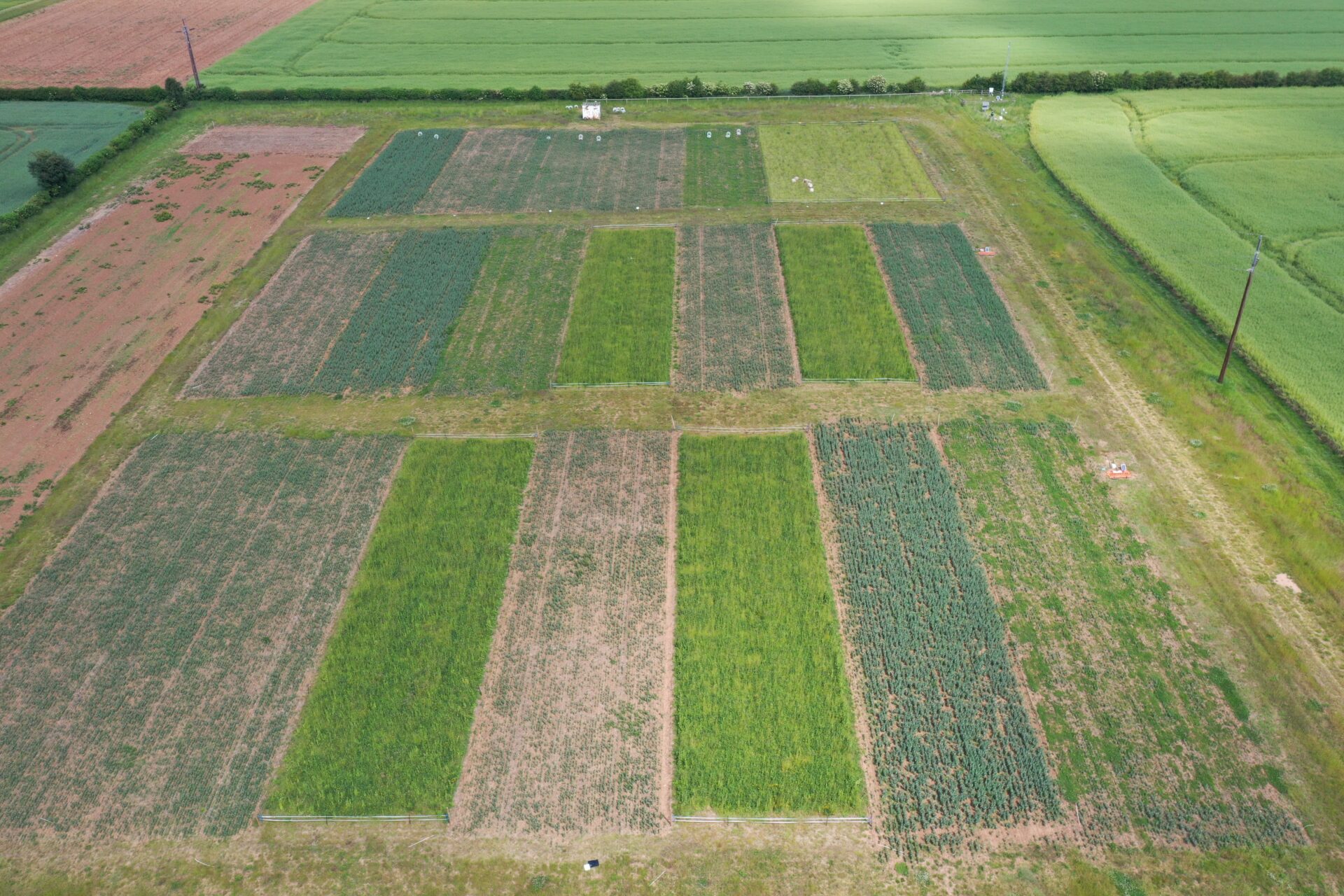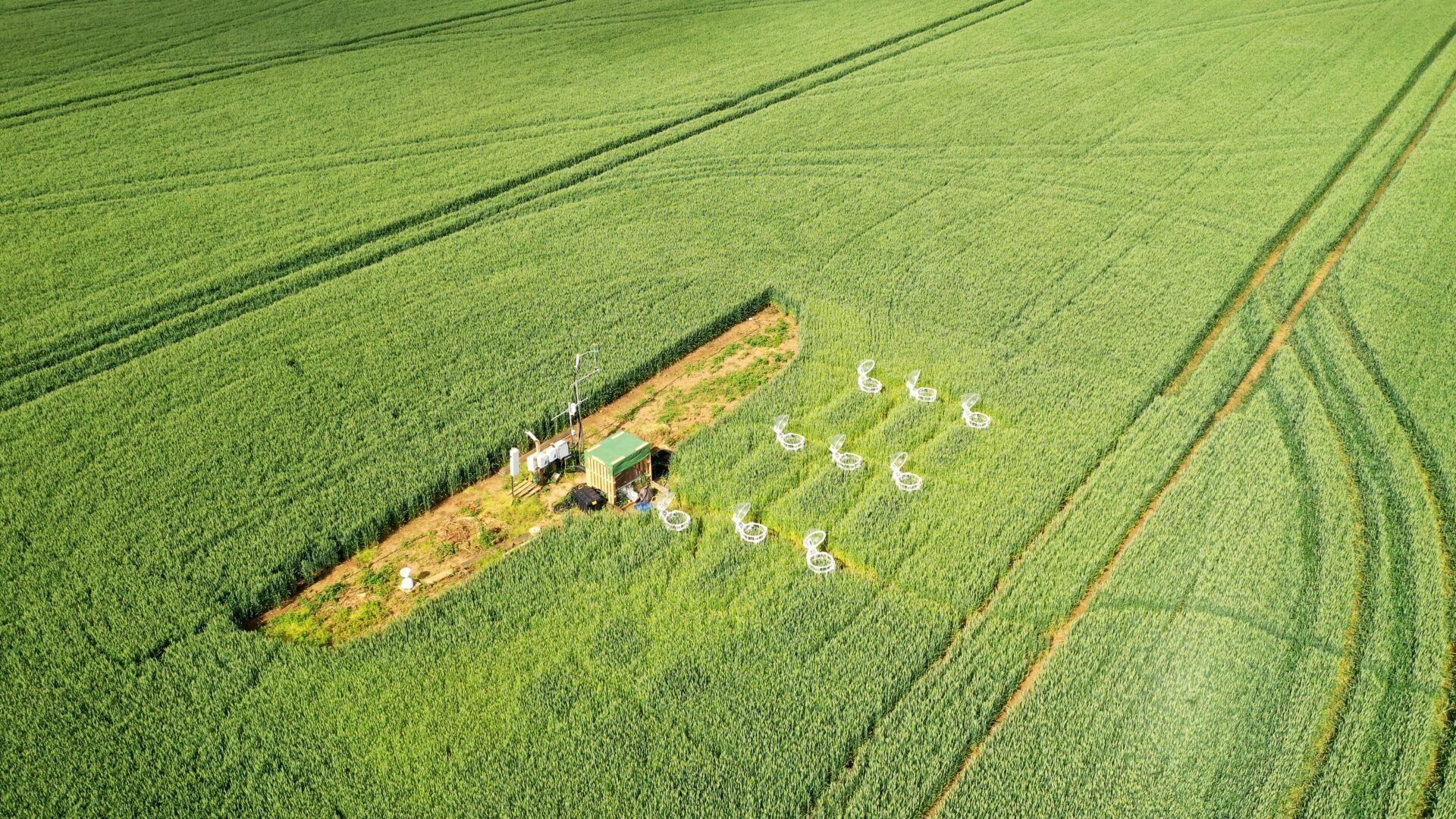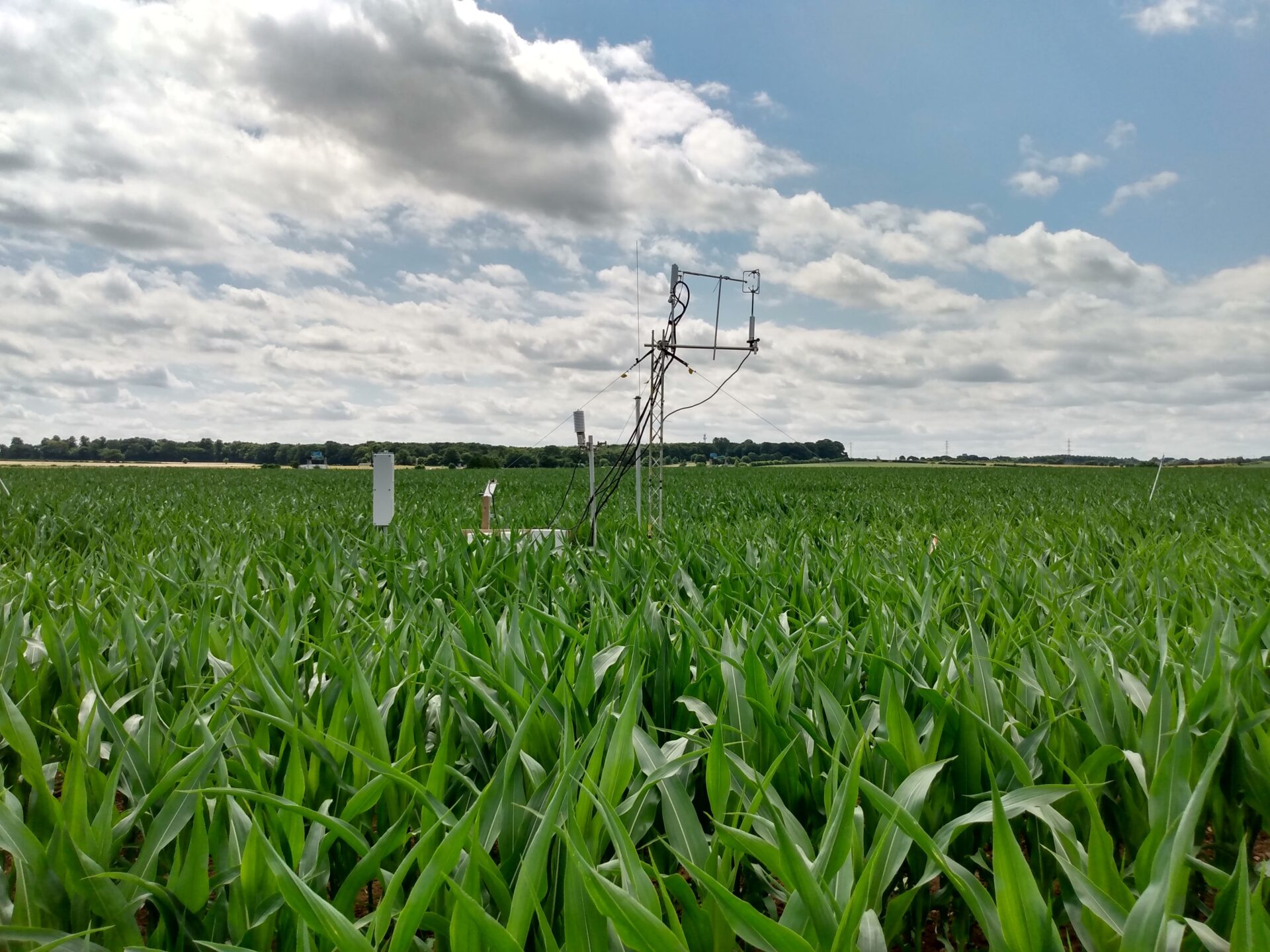Cooling down the food system: How can regenerative agriculture contribute to net zero
Dr Richard Grayson (School of Geography), Prof. P. Chapman (School of Geography) Dr Ruth Wade (School of Biology) & Dr Ross Morrison (UK Centre for Ecology and Hydrology)
Project Summary
Current agricultural practices have been incredibly successful but have negatively impacted our environment. Agriculture dominates UK land use (70%), causes 11% of total greenhouse gas (GHG) emissions, is the primary driver of soil degradation and biodiversity loss, contributes to water and air pollution and is vulnerable to climate impacts. In arable systems, nitrogen (N) fertiliser use contributes 60% of GHG emissions, predominantly as nitrous oxide (N2O). There has never been a more pressing time to develop new ways of producing food that move farming towards climate mitigation goals, whilst regenerating the environment and reversing other negative impacts. To achieve net-zero (NZ) GHG emissions by 2050, plus meet food needs and environmental commitments, a systemic shift in both agricultural production and N fertiliser use is essential. The farming system with the greatest potential to deliver this is regenerative agriculture (RA), a farmer-led movement, promoted by the agri-food sector and policymakers for sustainable agriculture.
Regenerative agriculture (RA) practices include minimal or zero tillage, cover crops, addition of organic amendments, increasing diversity of plant species, and inclusion of livestock and/or trees in farming systems, amongst others. In the UK, each devolved authority is developing national agri-environment schemes (e.g., Environmental Land Management schemes (ELMs) in England) that prioritise delivery of public goods and it is anticipated that by 2030, 75% of farms in England will engage in low carbon farming practices, increasing to 85% by 2035. Despite the UK government’s commitment and a growing sectoral shift towards RA, there remains a lack of robust evidence to guide the policy and practice needed to attain this transformation. This is due to a lack of: GHG monitoring and modelling (especially N2O, which dominates soil fluxes); Evidence on net effects (synergistic/antagonistic) of combining practices on GHG emissions, soil carbon sequestration and fertilizer savings, and the influence of soil-climate context; Understanding of the legacy effects of legume-rich temporary grasslands (leys) on soil health, fertility, carbon sequestration, N fertiliser use, and crop yields; Understanding of trade-offs, e.g., use of legumes to reduce fertiliser-associated emissions may be offset by increased N2O and methane emissions from integrating livestock and increasing organic amendments.
The University of Leeds is perfectly placed to deliver this research on its 317 ha commercial mixed farm, which is already leading the science of RA in the UK with a large replicated trial aiming to understand the most effective ways of transitioning from conventional farming to RA. Building on this platform, supported through a large supportive local farming network together with state-of-the-art facilities and equipment (such as automated GHG chambers and eddy covariance flux towers, advanced computing platforms) this project will deliver the data and evidence-base required to unlock the potential for RA to deliver its net zero goals and a lower emissions farming and food system.

Aims and Objectives
This project will make a significant contribution to shaping the future of UK agriculture during the transition towards net zero, using a unique combination of real-world farming expertise at a large research farm, advanced sensor technology and rapidly advancing data analysis methodologies. Building on our existing datasets, experimental field trials and cutting-edge facilities at the University of Leeds farm and laboratories, the PhD student will quantify GHG emissions and carbon storage of RA systems using a dense network of eddy covariance flux towers, combined with automated chamber systems and other sensor data.
The studentship will address a combination of topic areas, including:
- Direct quantification and analysis of land-atmosphere fluxes of water, carbon dioxide and nitrous oxide using eddy covariance flux towers and automatic chambers.
- Analysing the impacts of regenerative agricultural practices on GHG fluxes and soil carbon sequestration, based on robust, large-scale trials comparing different framing methods in adjacent fields.
- Quantifying the net ecosystem carbon balance of the most widespread and novel agricultural crops grown in the UK, as well as the environmental costs and benefits of different farming practices.
- Improving knowledge on the environmental processes that control biogeochemical cycling of carbon and nitrogen in agricultural systems, and how management interventions can be used to deliver more positive environmental outcomes.


Training
The student will work under the supervision of Dr Richard Grayson and Professor Pippa Chapman (Faculty of Environment, University of Leeds), Dr Ruth Wade (Faculty of Biological Sciences, University of Leeds) and Dr Ross Morrison (UK Centre for Ecology and Hydrology, UKCEH). Fieldwork will be conducted in the UK, and the findings will be of international relevance. The student will have access to excellent training and field and laboratory resources at the University of Leeds and UKCEH.
- University of Leeds Research Farm:
- Five Eddy Covariance flux towers focussed on observing land-atmosphere fluxes of carbon dioxide (CO2) and water vapour (evapotranspiration).
- Automated soil GHG flux chamber system with analyser capable of measuring CO2 CH4, N2O and H2O
- One of the UKs leading regenerative agriculture research trial
- Lysimeter facility
- UKCEH:
- Nationwide network of Eddy Covariance flux towers.
- School of Geography, University of Leeds
- Mobile gas analysers capable of measuring CO2, CH4, N2O, NH3 and H2O.
- Extensive laboratory facilities, including dedicated soils laboratory, and field store
- Be a part of Leeds Global Food and Environment Institute, Priestley climate centre and water@leeds
The student will take on a key coordinating role, integrating the University of Leeds flux tower research with the national (UKCEH) and international (fluxnet) GHG monitoring programmes.
The successful candidate will develop a range of research skills, including experimental design, field sampling, statistical analysis and data interpretation, modelling, academic writing skills and giving presentations. Training will be provided in field/laboratory health and safety procedures and the use of field and analytical equipment.


